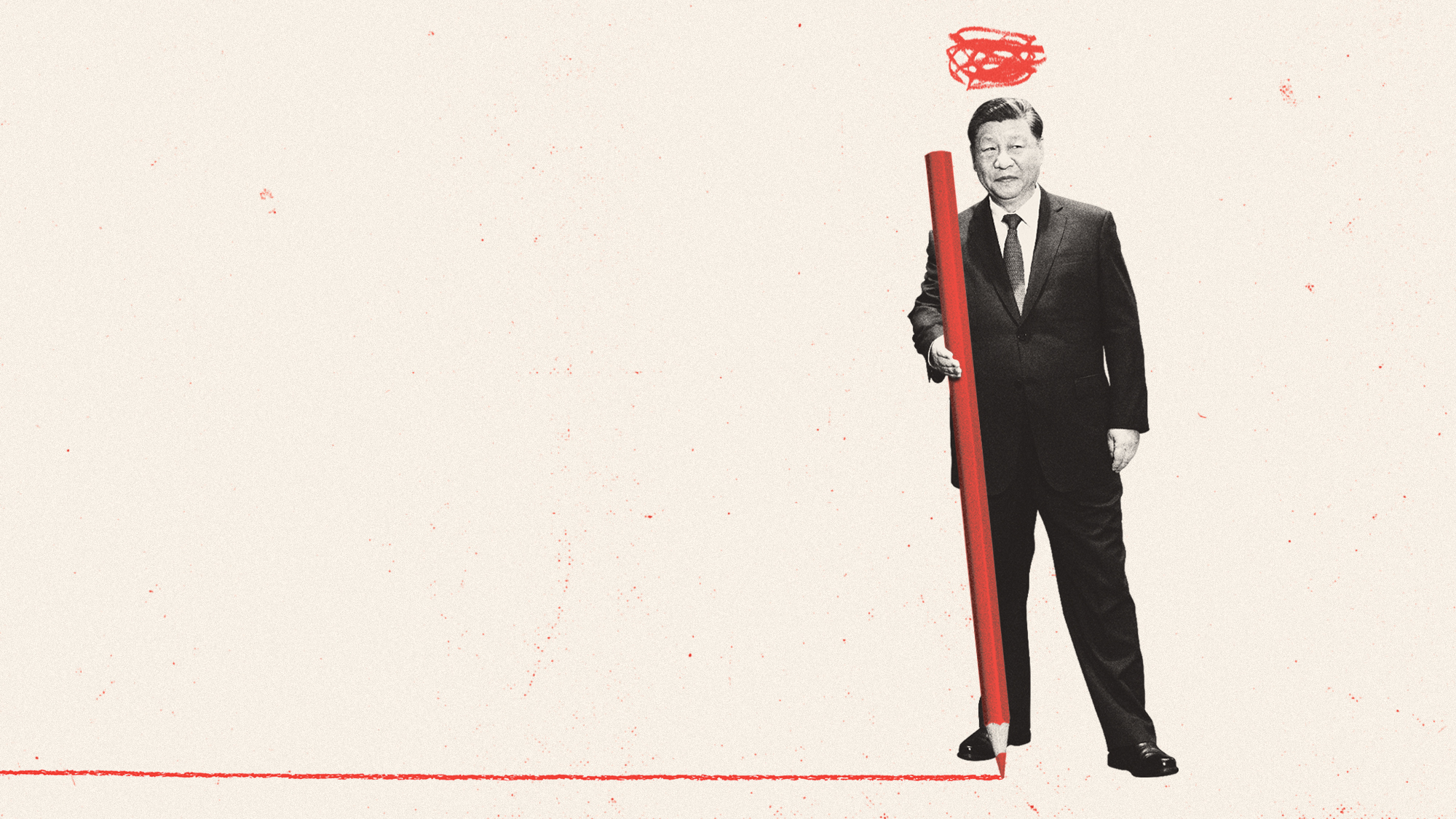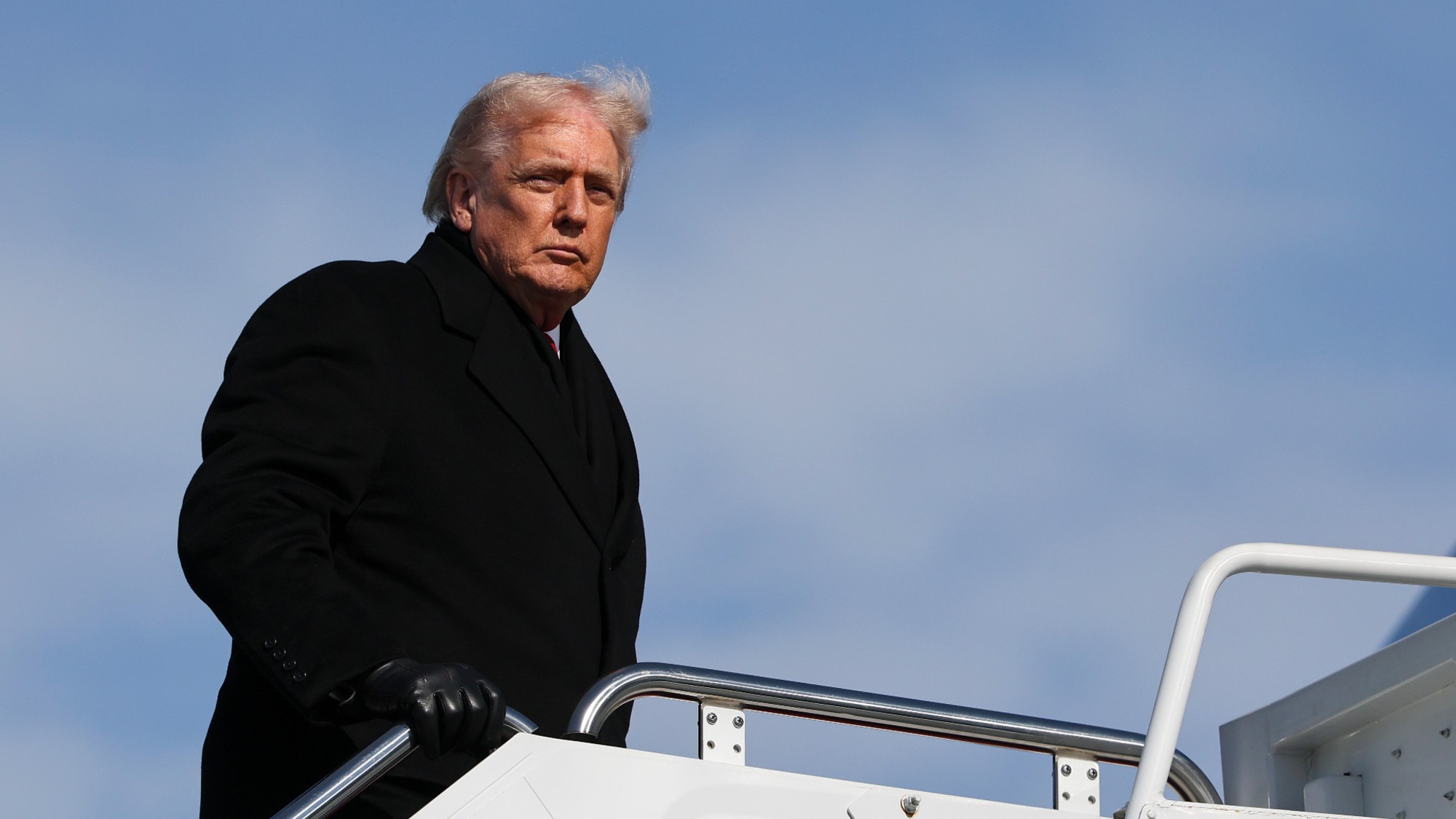Is the US testing China's 'red lines' on Taiwan?
And how will Trump change the US-China relationship?


A free daily email with the biggest news stories of the day – and the best features from TheWeek.com
You are now subscribed
Your newsletter sign-up was successful
President Joe Biden is trying to strengthen Taiwan's defenses before he leaves the White House. The United States, said China's leaders (who consider now-independent Taiwan to be China's territory), is undermining "peace and stability" in East Asia as a result.
American leaders, Beijing said, are "playing with fire" with the latest round of military assistance to Taiwan, Politico said. The warning came after Biden authorized up to $571 million in defense-related "material and services" to the democratic island. (The Pentagon at the same time announced it had approved $295 million in military equipment sales.) China's foreign ministry said that Taiwan is a "red line that must not be crossed" by the U.S., Reuters said, and added that it would take "all necessary measures" to protect its claim.
"Beijing regularly protests announcements of U.S. arms sales to Taiwan," said The Wall Street Journal. Its latest pushback comes at a moment of transition, with Donald Trump about to take office. Trump's approach to the China-Taiwan tension "generally remains unclear." Trump has warned Taiwan — like NATO — that it should "significantly increase its military spending and not rely entirely on U.S. military support," said the Journal.
The Week
Escape your echo chamber. Get the facts behind the news, plus analysis from multiple perspectives.

Sign up for The Week's Free Newsletters
From our morning news briefing to a weekly Good News Newsletter, get the best of The Week delivered directly to your inbox.
From our morning news briefing to a weekly Good News Newsletter, get the best of The Week delivered directly to your inbox.
What did the commentators say?
"China is seeking to set the terms for the U.S.-China bilateral relationship for the next four years," David Sacks said at the Council on Foreign Relations. Beijing's talk of "red lines" — including at a recent meeting between Biden and Chinese leader Xi Jingping — is a warning to the U.S. "not to pursue certain policies." China understands the United States probably will not abide by those lines, under Biden or Trump, but publicly announcing them "gives Beijing the opportunity to put the onus on Washington for heightened tensions," Sacks said. Despite that, it seems likely that "U.S. security cooperation with Taiwan will continue apace."
"The incoming administration should reject China's red lines as unworkable both in principle and in practice," Jack Burnham said at the Foundation for Defense of Democracies. It is not only Taiwan: Beijing has announced it considers efforts to promote democracy in China and U.S. sanctions to limit Chinese trade and technology acquisition to be other "red lines" that American leaders should not cross. The new Trump Administration should ignore those warnings. Why? "China is attempting to preemptively set the tone of the relationship," Burnham said.
What next?
"Taiwan is buckling up for what could be a far more volatile relationship with Washington," said CNN. Trump has stacked his new cabinet with "China hawks." On the campaign trail Trump argued that Taiwan should pay the United States "protection money" while also saying the country had "stolen" America's electronics chip-making businesses. That leaves leaders in Taipei City nervous, said Chen Ming-chi, a former senior advisor to Taiwan's National Security Council. Trump's "unpredictability," he said, means "we don't know if Taiwan will be safer or more dangerous under his second term."
A free daily email with the biggest news stories of the day – and the best features from TheWeek.com
Joel Mathis is a writer with 30 years of newspaper and online journalism experience. His work also regularly appears in National Geographic and The Kansas City Star. His awards include best online commentary at the Online News Association and (twice) at the City and Regional Magazine Association.
-
 Heated Rivalry, Bridgerton and why sex still sells on TV
Heated Rivalry, Bridgerton and why sex still sells on TVTalking Point Gen Z – often stereotyped as prudish and puritanical – are attracted to authenticity
-
 Sean Bean brings ‘charisma’ and warmth to Get Birding
Sean Bean brings ‘charisma’ and warmth to Get BirdingThe Week Recommends Surprise new host of RSPB’s birdwatching podcast is a hit
-
 Film reviews: ‘Send Help’ and ‘Private Life’
Film reviews: ‘Send Help’ and ‘Private Life’Feature An office doormat is stranded alone with her awful boss and a frazzled therapist turns amateur murder investigator
-
 Trump’s Kennedy Center closure plan draws ire
Trump’s Kennedy Center closure plan draws ireSpeed Read Trump said he will close the center for two years for ‘renovations’
-
 Trump's ‘weaponization czar’ demoted at DOJ
Trump's ‘weaponization czar’ demoted at DOJSpeed Read Ed Martin lost his title as assistant attorney general
-
 Gabbard faces questions on vote raid, secret complaint
Gabbard faces questions on vote raid, secret complaintSpeed Read This comes as Trump has pushed Republicans to ‘take over’ voting
-
 Greenland: The lasting damage of Trump’s tantrum
Greenland: The lasting damage of Trump’s tantrumFeature His desire for Greenland has seemingly faded away
-
 The price of forgiveness
The price of forgivenessFeature Trump’s unprecedented use of pardons has turned clemency into a big business.
-
 Will Peter Mandelson and Andrew testify to US Congress?
Will Peter Mandelson and Andrew testify to US Congress?Today's Big Question Could political pressure overcome legal obstacles and force either man to give evidence over their relationship with Jeffrey Epstein?
-
 The ‘mad king’: has Trump finally lost it?
The ‘mad king’: has Trump finally lost it?Talking Point Rambling speeches, wind turbine obsession, and an ‘unhinged’ letter to Norway’s prime minister have caused concern whether the rest of his term is ‘sustainable’
-
 A running list of everything Donald Trump’s administration, including the president, has said about his health
A running list of everything Donald Trump’s administration, including the president, has said about his healthIn Depth Some in the White House have claimed Trump has near-superhuman abilities
